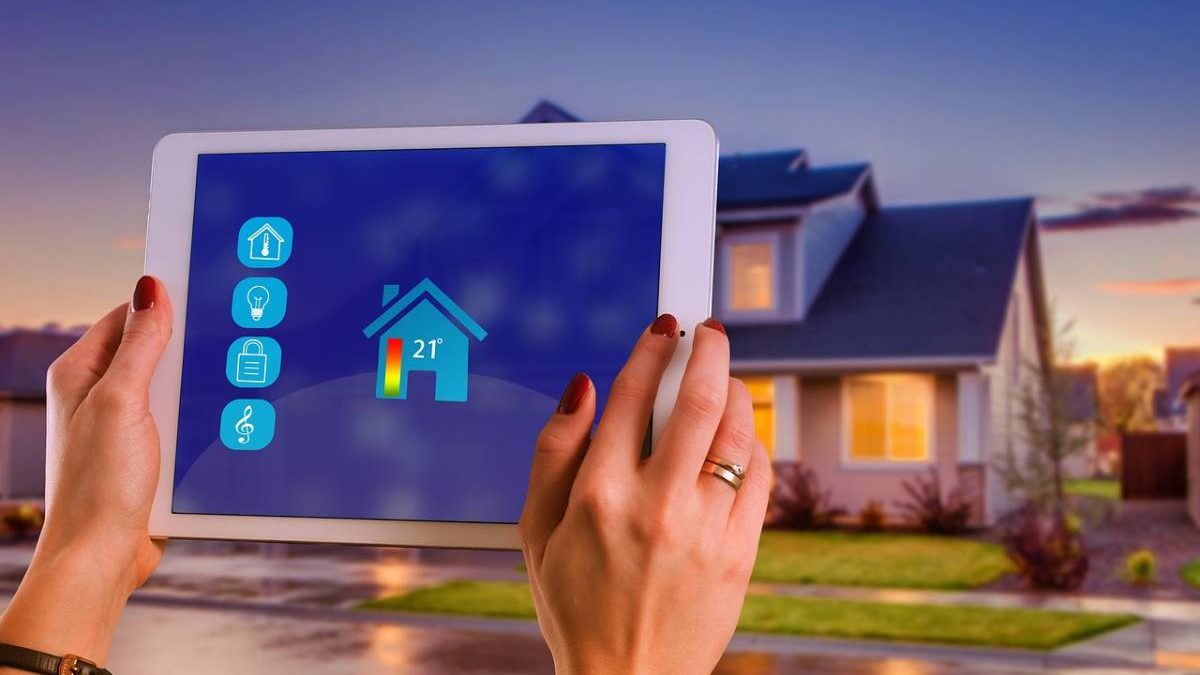Smart homes have managed to gain significant popularity in recent years, transforming the way we live and interact with our homes. Smart homes are equipped with various interconnected devices and systems that are designed to make our lives more convenient, comfortable, and efficient.
From smart thermostats and lighting to security cameras and entertainment systems, these devices are all connected to the internet, allowing homeowners to control and manage them remotely. WiFi plays a pivotal role in the functioning of smart homes. So, click here to learn more about some amazing WiFi and internet services that would help you set up your own smart home.
In this blog, we will explore what smart homes are, how they work, and the critical role WiFi plays in their operation.
Table of Contents
How Do the Smart Homes Work?
Smart homes are homes that are equipped with various devices and systems that are connected to the internet and can be controlled remotely. These devices communicate with each other through a home automation system, allowing homeowners to manage and monitor their homes from anywhere using internet-connected devices or their smartphones.
Smart appliances, smart security systems, smart thermostats, smart lighting, and smart entertainment systems are some common examples of smart home devices.
The core concept of a smart home is automation. Smart devices are interconnected via a home automation system, which allows them to communicate and interact with each other. This system is typically controlled through a central hub or a mobile app, which acts as a command center for the smart home.
Role of WiFi in Creating Smart Homes
WiFi is a crucial component of smart homes as it provides wireless connectivity that allows smart devices to communicate with each other and with the homeowner’s mobile app or central hub. WiFi enables smart devices to connect to the internet and send and receive data in real-time, allowing homeowners to control and monitor their smart home devices remotely. However, you can always check out these Mediacom bundle deals to see if your ISP supports smart homes or not.
For example, a homeowner can use their smartphone to adjust the temperature on their smart thermostat while they are away from home, or remotely view live video feeds from their smart security cameras.
Benefits of WiFi in Smart Homes
The use of WiFi in smart homes offers several benefits. Firstly, it provides convenience and flexibility to homeowners by allowing them to control and monitor their smart devices remotely. This means that homeowners can adjust settings, receive notifications, and even troubleshoot issues without having to be physically present at home.
WiFi also enables seamless integration and communication between different smart devices, creating a unified and interconnected ecosystem within the smart home. For example, a homeowner can set up a “Goodnight” routine that automatically turns off lights, locks doors, and adjusts the thermostat temperature with a single command or a tap on their smartphone.
Considerations for WiFi in Smart Homes
While WiFi is a crucial component of smart homes, there are some considerations to be aware of when it comes to using WiFi in smart homes. Here are some important considerations:
Network Reliability
Reliable and stable WiFi connectivity is essential for the smooth functioning of smart homes. Smart devices rely on a strong and stable internet connection to communicate with each other and with the homeowner’s mobile app or central hub. Therefore, it’s important to ensure that your home network is robust and capable of handling the bandwidth requirements of all your smart devices.
Network Security
Since smart devices are connected to the internet, network security is a critical concern. It’s important to secure your WiFi network with a strong and unique password, enable encryption (WPA2 or higher), and regularly update your router’s firmware to protect against potential security threats. Additionally, it’s advisable to keep your smart devices and their associated apps updated with the latest software patches and security updates.
Bandwidth Requirements
Smart devices, especially those that stream video or require constant data communication, can consume significant bandwidth. It’s important to ensure that your internet service plan provides sufficient bandwidth to support all your smart devices without experiencing slow speeds or buffering.
WiFi Range & Coverage
The range and coverage of your WiFi network can also impact the performance of your smart home devices. Make sure that your WiFi router is positioned centrally in your home to provide adequate coverage to all areas. If needed, consider using WiFi extenders or mesh WiFi systems to extend the coverage to areas with weak signals.
Final Thoughts
Smart homes are revolutionizing the way we live, and WiFi plays a crucial role in their operation.
WiFi provides wireless connectivity that enables smart devices to communicate with each other and with the homeowner’s mobile app or central hub, allowing for remote control and monitoring.
If you are willing to initiate a setup program for your smart home, getting in touch with the internet providers in my area is the way to go. As smart home technology continues to advance, WiFi will continue to play a key role in enabling the seamless integration and automation of various smart devices, making our homes smarter, more convenient, and more efficient.

